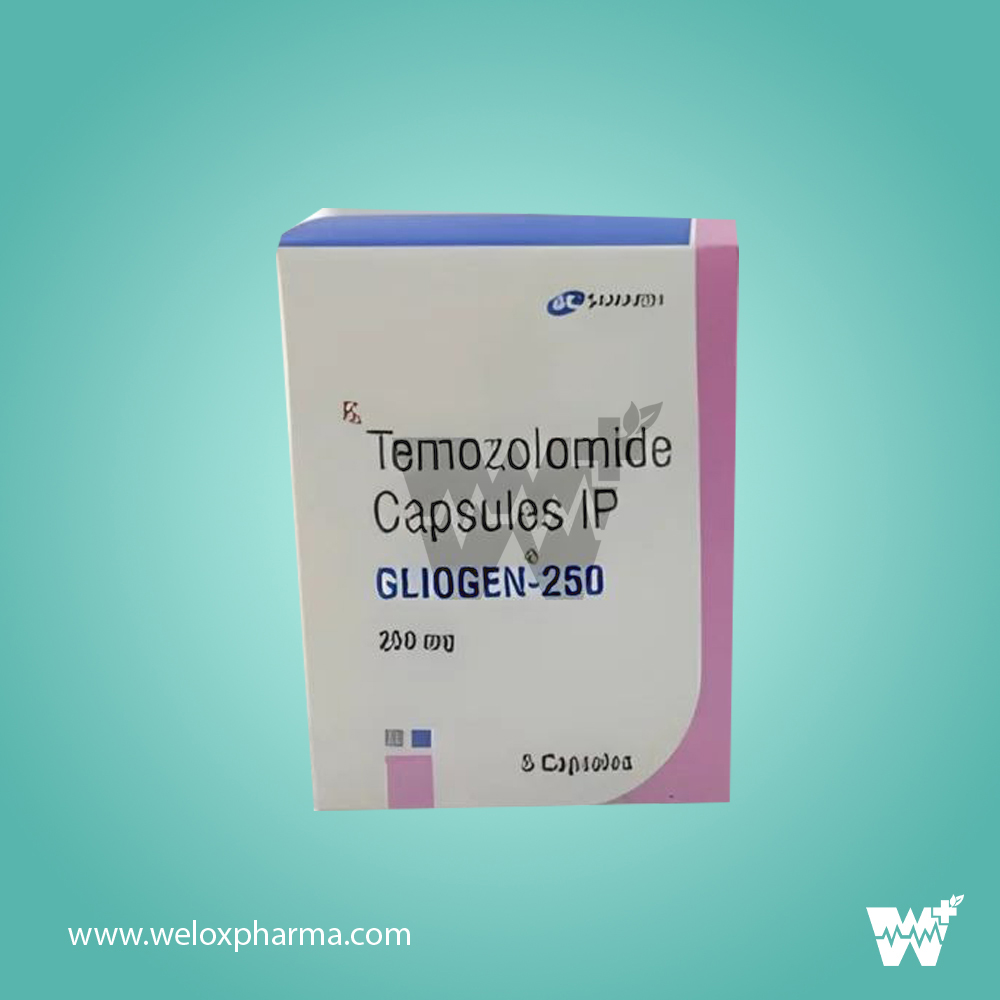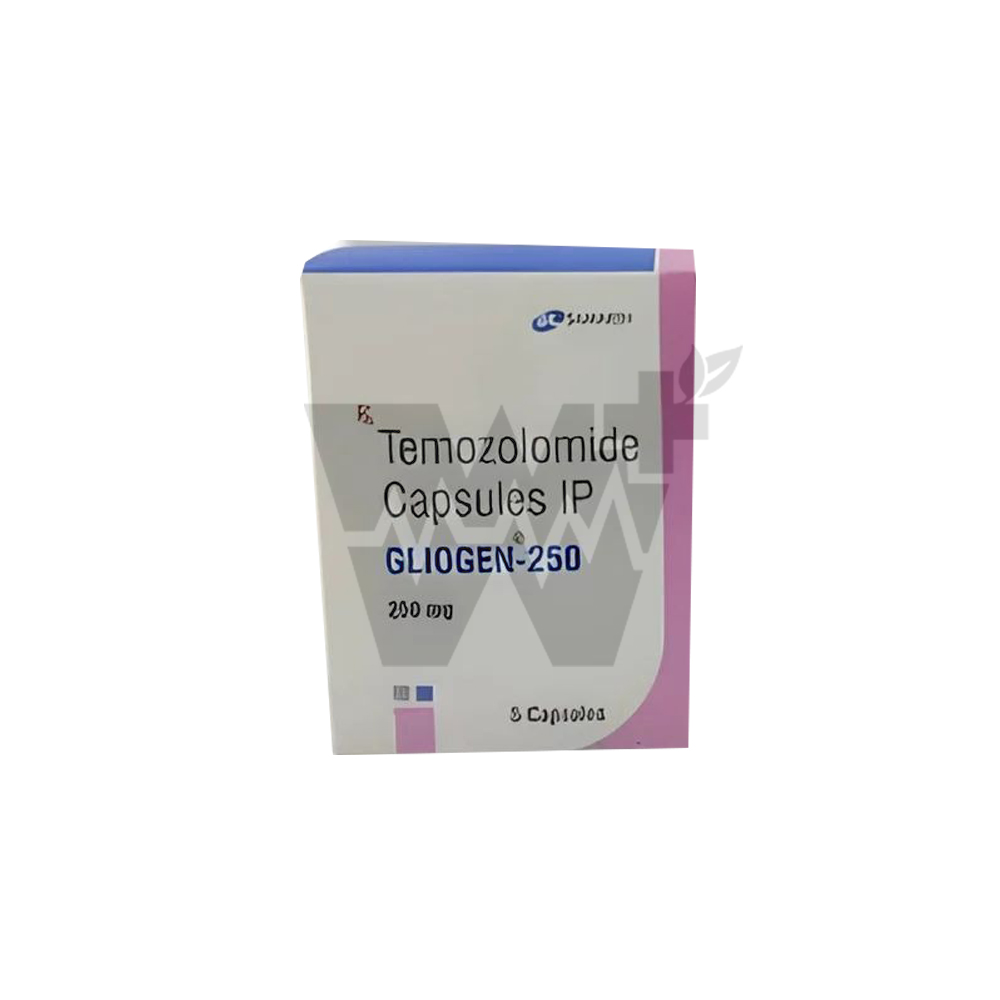



Introducing Gliogen 250mg Tablet:
A Vanguard in Brain Cancer Therapy Gliogen 250mg Tablet stands as a pivotal intervention in cancer therapy, specifically tailored for the treatment of a particular type of brain cancer. This medication comes into play when addressing recurring or worsening brain tumors post-conventional treatments, showcasing its potential application in various conditions, subject to expert evaluation.
Optimizing Treatment with Gliogen 250mg Tablet:
For maximum efficacy, Gliogen 250mg Tablet is recommended to be taken on an empty stomach at the same time daily, ensuring a consistent intake for optimal impact. Your healthcare provider, armed with specialized knowledge, will determine the essential dosage and frequency based on the specifics of your condition. Precision in adhering to your doctor's guidance is crucial, as misinterpretation or excessive intake may lead to severe consequences. Patience is key, as it may take weeks or months to observe the full benefits of this medication, and discontinuation should only occur under explicit advice from your healthcare professional.
Key Applications of Gliogen 250mg Tablet:
Brain Cancer Treatment:
Gliogen 250mg Tablet takes center stage in the therapeutic approach to brain cancers, particularly in cases of recurrence or worsening post-standard interventions.
Advantages of Gliogen 250mg Tablet in Managing Brain Cancer:
Brain cancer, characterized by abnormal cell growth within the brain, faces a potent adversary in Gliogen 250mg Tablet. This potent and highly toxic medication effectively halts the growth of cancer cells and prevents their replication. A comprehensive discussion with your healthcare provider is crucial to understanding the nuanced risks and benefits associated with Gliogen. During the course of this treatment, it is advised to abstain from alcohol consumption and ensure adequate hydration through water intake.
Unveiling the Mechanism of Action:
Gliogen 250mg Tablet operates as an anti-cancer medication by penetrating brain tissues. It works by damaging the genetic material (DNA and RNA) of cancer cells, strategically arresting their growth and replication.